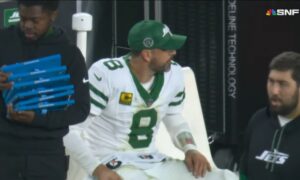Leadership does not exist in a vacuum. It is not finite, and losing a source of leadership does not represent a lower ‘ceiling’ of leadership qualities.
That is what the Pittsburgh Steelers are banking on this season, especially following the releases of linebackers Larry Foote and LaMarr Woodley, two of the most veteran players on the team.
The loss of Foote is, of course, the bigger blow from a leadership perspective. Foote called the defense, and he commanded respect from his teammates. He was a presence in the locker room and was always there to help his teammates out, both on and off the field.
That’s not something that gets replaced overnight. But as Mike Tomlin said yesterday, the roster has to evolve on a year-to-year basis. By its very nature, a roster never stays the same, even if the players remain, because the players too evolve.
“The guys who are here are going to have one more year of experience. We don’t expect those guys to stay the same. We expect those guys to grow”, he said.
We expect [Jason] Worilds to grow. We expect Lawrence Timmons to grow. We expect Jarvis Jones to grow. Even though you lose some veteran leadership and experience with the loss of (Woodley and Foote), and that’s significant, but at the same time, I think it is important that we all recognize and state we don’t expect those who remain to remain the same. We expect them to continue to grow on and off the field.
These players will grow. And keeping older players around longer than they should stunts the growth of those under them. That was the case with Worilds playing behind Woodley. He’s now gradually blossoming into a quality outside linebacker.
That, too, may be the case for Williams, the new Buck linebacker. He seems to have the right makeup for leadership. He has the mentality and the intellect to do it. As long as his play on the field allows it, he could slowly step into that leadership role and help fill the void.
The Steelers did add some leadership this offseason when they signed free safety Mike Mitchell from the Carolina Panthers, and he will be filling the void left behind by Ryan Clark, another vocal leader on the field.
Clark was the voice of the back end of the defense. He was the eyes of the last line of defense for the signal caller, seeing things he couldn’t see and helping to make sure everybody was in place.
Mitchell is a vocal leader as well, and knows how to read and align the defense. Once he grows accustomed to his new environment—which shouldn’t be a problem based on his one-year stay in Carolina—he, too, should help stem the tide of a feared loss of leadership, which can be a delicate line to walk while trying to keep the roster in shape from a talent standpoint. It’s one thing for a player to be a leader, but he has to be a player first before he can lead.







